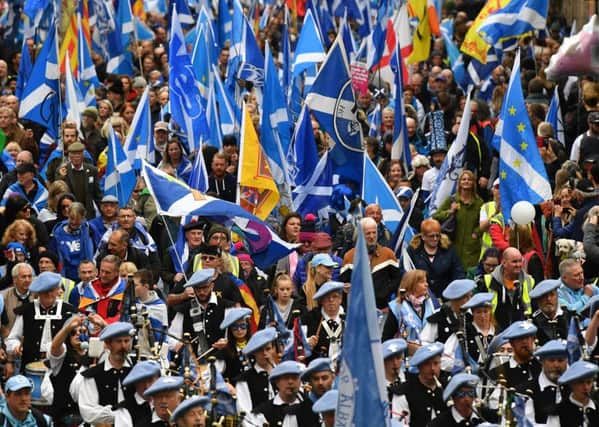Artists happy to declare independence but few speak out about the arts – Brian Ferguson


But I may have been the only one to notice that its emergence also marked the anniversary of a previous declaration of intent. Seven years ago, there was a mood of defiance and rebellion among much of the Scottish cultural establishment, as a damning open letter with 100 signatories sent shock waves across the country.
Their campaign to overhaul the running of Creative Scotland began with an attack on its “ill-conceived decision-making; unclear language, lack of empathy and regard for Scottish culture”. Firmly in the rebels’ sights were Andrew Dixon and Sandy Crombie, respectively chief executive and chairman, for their running of the quango, amid claims it was run with a “confusing and intrusive management style married to a corporate ethos that seems designed to set artist against artist and company against company in the search for resources”. Just two years after its launch, the organisation was in disarray by the time Mr Dixon bowed to pressure from the cultural sector and resigned, less than two months after the open letter. Mr Crombie was gone within 18 months.
Advertisement
Hide AdAdvertisement
Hide AdPerhaps it is something to do with the fact that the launch of the rebellion against Creative Scotland coincided with the start of my tenure as Arts Correspondent of this newspaper, but I often long for their return, particularly when the equivalent act of rebellion in 2019 is to issuing a rallying cry in support of the party of the government before its annual conference.
‘Kindness, neighbourliness and generosity’
On the face of it, the “Declaration for Independence” backed by long-time supporters of the cause, such as actor Brian Cox, writer Liz Lochhead, actress Elaine C Smith and singer Eddi Reader, is pretty harmless stuff, with its commitment to an independent Scotland being “an open and democratic society in which no individual is excluded, oppressed or discriminated against”, its talk of a written constitution, and an affirmation of “values of care, kindness, neighbourliness and generosity of spirit”.
The declaration, which warned that the alternative to independence would effectively mean Scots wanted to “relinquish their right to decide their own destiny”, touches on trade, commerce, nuclear weapons, land ownership, the judiciary and economic growth. But I searched in vain for any mention of arts or culture.
This would be an odd enough omission if the sector was not still waiting on a new national cultural strategy, more than two years after plans were unveiled. A draft strategy raised clear concerns about the sector’s “lack of diversity”, how funding systems benefit people with established networks and privileged backgrounds, expectations of having to work “for very little or for free” and the number of people who feel “vulnerable, undervalued and unable to reach their potential”. Creative Scotland, meanwhile, is still without a full-time chief executive, 15 months after the resignation of Mr Dixon’s successor, Janet Archer, a hiatus which has hardly caused a ripple of discontent amongst the arts establishment. Hopes of a national film studio being up and running by the end of this year have so far come to nothing. Scotland may be a country with no shortage of artists prepared to get involved in politics. But is it one where few are now prepared to rock their own boat?
